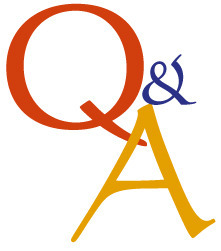Jacqui Murray's Blog, page 190
May 8, 2012
Tech Tip for Writers #54: How to Auto Forward a PowerPoint Slideshow
 Tech Tips for Writers is an (almost) weekly post on overcoming Tech Dread. I’ll cover issues that friends, both real-time and virtual, have shared. Feel free to post a comment about a question you have. I’ll cover it in a future Tip.
Tech Tips for Writers is an (almost) weekly post on overcoming Tech Dread. I’ll cover issues that friends, both real-time and virtual, have shared. Feel free to post a comment about a question you have. I’ll cover it in a future Tip.
Q: I want to use PowerPoint to share my novel with a writer’s group who’s asked me to talk with their members. I want it to go automatically without requiring me to click the mouse or push the space bar. How do I do that?
A: PowerPoint presentations are great for sharing information with their exciting colors, sounds, movements. You’ll be happy to know that auto-forward isn’t difficult:
go to Transition on the menu bar
go to Timing on the right side
Leave ‘on mouse click’ selected (in case you need to move it forward)
set the timer to serve the needs of the slide. This will require practice before presenting so you can put the correct time in.
Questions you want answered? Leave a comment here and I’ll answer it within the next thirty days.
______________________________________________________________________________________________
Jacqui Murray is the editor of a technology curriculum for K-sixth grade, creator of two technology training books for middle school and three ebooks on technology in education. She is the author of Building a Midshipman , the story of her daughter’s journey from high school to United States Naval Academy. She is webmaster for six blogs, an Amazon Vine Voice book reviewer, a columnist for Examiner.com , Editorial Review Board member for Journal for Computing Teachers, Cisco blogger, IMS tech expert, and a weekly contributor to Write Anything. Currently, she’s editing a thriller for her agent that should be out to publishers this summer. Contact Jacqui at her writing office or her tech lab, Ask a Tech Teacher.
Filed under: tech tips for writers Tagged: Powerpoint, tech tips, writers tips








May 7, 2012
Writer’s Tips #7: ‘Very’ is Very Useless
 When you read your story, does it sound off, maybe you can’t quite put your finger on it, but you know you’ve done something wrong? Sometimes–maybe even lots of times–there are simple fixes. I’ll point them out. They’ll come at you once a week, giving you plenty of time to go through your story and make the adjustments. Please add comments with your favorite editing fixes.
When you read your story, does it sound off, maybe you can’t quite put your finger on it, but you know you’ve done something wrong? Sometimes–maybe even lots of times–there are simple fixes. I’ll point them out. They’ll come at you once a week, giving you plenty of time to go through your story and make the adjustments. Please add comments with your favorite editing fixes.
Almost always, eliminating the word very strengthens your story. It is the weakest adjective in the language. Look at these:
very sad is the same as despondent
very happy is the same as elated
Do a search for very in your ms. (use edit-find). Then do one of two things:
Spend the time to eliminate it
Replace it and the verb it’s attached to with a stronger verb.
Trust me. It actually makes agents angry to read that word. You don’t want to make the agent who might sign your novel angry.
To have these tips delivered to your email, click here.
Jacqui Murray is the editor of a technology curriculum for K-sixth grade, creator of two technology training books for middle school and three ebooks on technology in education. She is the author of Building a Midshipman , the story of her daughter’s journey from high school to United States Naval Academy. She is webmaster for six blogs, an Amazon Vine Voice book reviewer, a columnist for Examiner.com , Editorial Review Board member for Journal for Computing Teachers, Cisco blogger, IMS tech expert, and a weekly contributor to Write Anything. Currently, she’s editing a thriller for her agent that should be out to publishers this summer. Contact Jacqui at her writing office or her tech lab, Ask a Tech Teacher.
Filed under: writers tips Tagged: very, writers tips








May 4, 2012
How Do I Decide What to Write About?
What I blog about Photo credit: Blogger Sentral
I’d like to claim that I pick topics of paramount importance in the writing community, the crux of conversations that just must be talked about.But that’s not true. I select topics that interest my readers. It’s a pull-through approach rather than push-through.
You-all communicate what you’d like to read about in several ways:
comments–what concerns you enough to comment about probably deserves more conversation. I take note of that.
Search Engine terms–that gives me a sense of what’s interesting to new readers
click-throughs–those are the links I provide in posts that people click to garner additional information
Lately–this past quarter–many people have been searching for help on descriptors–how to put more color in their writing. Eight of the top ten search engine terms revolve around that. As for click-throughs–same story. The articles I write on best practices–writers tips, writing skills, book reviews–as a group have strong interest, but not as much as the specifics.. I’ll keep writing them because I think there’s latent interest. Last year, those were the highest ranked articles so I think that may flip flop again
How about you–how do you decide what to write?
Jacqui Murray is the editor of a technology curriculum for K-sixth grade, creator of two technology training books for middle school and three ebooks on technology in education. She is the author of Building a Midshipman , the story of her daughter’s journey from high school to United States Naval Academy midshipman. She is webmaster for six blogs, an Amazon Vine Voice book reviewer, a columnist for Examiner.com , Editorial Review Board member for Journal for Computing Teachers, IMS tech expert, and a weekly contributor to Write Anything. Currently, she’s editing a thriller for her agent that should be out to publishers this summer. Contact Jacqui at her writing office or her tech lab, Ask a Tech Teacher.
Filed under: writers, writing Tagged: writers life, writing








May 3, 2012
A Writers Life For Me or Do I Need a New Career?
It’s four months into the year and a good time to assess progress. In those heady post-New Year’s days, I had high hopes for finishing my novel, finding an agent and publisher, expanding my non-fiction business, and extending the

I dream of being a writer
reach of my myriad blogs, ezines and guest posts. All this while hanging on to the teaching job that pays the bills and provides my health insurance.
So, you wonder, how’s it going? Where am I in my writing efforts? Truthfully, I find few things less interesting than yesterday’s dreams, except old stock market reports, but let’s do a run-down. The good news is, I’m about where I expected I’d be, a little ahead in places, behind in others, overall a constant state of uncivil war between my muses. I’ll run it down for you:
When I sent query letters out over the holiday season, I expected mixed reviews–some bad, some brutal. The fact that my husband loved the book I figured would have no relationship to its success. Much to my joy, I found an agent who likes the book as much as my mate. He sent me a boatload of edits for my 400+-page mss which I am working through. They were all spot on–only one did a have questions about. As I make the changes, I feel the story come to life. A few have been complicated–like rewrite the beginning. I had as much enthusiasm for reworking the opening five pages as I have for teaching in tight shoes. It required a chunk of cerebral energy (more time consuming than the physical stuff), but I’m through it now and I survived, not unbruised, but intact and happy with the changes. My goal is to have the edits done and back to him by mid-April. At that point, he’ll either send me more (pant pant) or we’re off to publishers. An interesting side note: My story (Twenty-four Days) is a military/techno thriller. Last week, there was a news headline that grabbed the gyst of my plot. If I were publishing next week, I’d be ‘ripped from the headlines’. Unfortunately, since I’m likely a year away, it’ll probably be old news by then.
I’m working on my next two non-fiction books–one on K-8 keyboarding and one on tech tips from the classroom (I know–reading technical books is like taking a cheese grater to your nerves, but hey, someone has to write them). I’ve put out sign-up lists on my blog for people interested in being notified when they’re ready. That approach has worked well for me in the past. My deadline with my publisher (a non-fiction textbook publisher) is mid-summer, in time for the new school year. I feel good about that date. They’ll be published as ebooks only, so much simpler than print.
Book sales of published books are OK–ahead of last year, but not by as much as I’d like. I’m working on marketing, but I’m a tad short on ideas. I’ve set up stores at Amazon, Google ebooks, Scribd. I’ve done the round of social networking, i.e. FB, G+, Twitter. I follow all the rules (comment on other people’s articles, reply to people who drop by my blogs, never let sleeping dogs take their nap). I’m actually considering some paid professional assistance, but have not been able to get to a comfort level with it. Anyone have good experiences to share?
One of my goals was to return to my favorite creative nonfiction theme, the paleo-history of man. I had planned to do that after finishing Twenty-four Days, but I may put it off. I have the prequel drafted out for that thriller. If I find a publisher who likes Twenty-four Days, he may be interested in the prequel. It’ll require at least all summer to pull together if not longer. My paleohistoric novel will then have to wait. I have tons of writing time over summer, but not enough for two full-length novels.
My blogs are going fine, but after all is said and done, a heck of a lot more has been said in my blogs than done. Their main purpose is to support my books and they are doing that. I continue to increase subscribers, though am far from where I need to be to find success. I know the likelihood of me becoming the next million-subscriber blogger is as likely as legalized marijuana. Well, I could move to San Francisco and up those chances…
Enough about me. How are YOU doing in reaching your goals?
Jacqui Murray is the editor of a technology curriculum for K-sixth, creator of two technology training books for middle school, and three ebooks on teaching tech to K-8. She is the author of Building a Midshipman , the story of her daughter’s journey from high school to United States Naval Academy midshipman. She is webmaster for six blogs, an Amazon Vine Voice book reviewer, a columnist for Examiner.com , Editorial Review Board member for Journal for Computing Teachers, IMS tech expert, and a weekly contributor to Write Anything and Technology in Education . Currently, she’s editing a thriller for her agent that should be out to publishers this summer. Contact Jacqui at her writing office or her tech lab, Ask a Tech Teacher.
Filed under: writing Tagged: 2012, dreams, goals, writers life, writing








May 1, 2012
Tech Tip for Writers #53: How to Pin Any Program to the Start Menu
 Tech Tips for Writers is an (almost) weekly post on overcoming Tech Dread. I’ll cover issues that friends, both real-time and virtual, have shared. Feel free to post a comment about a question you have. I’ll cover it in a future Tip.
Tech Tips for Writers is an (almost) weekly post on overcoming Tech Dread. I’ll cover issues that friends, both real-time and virtual, have shared. Feel free to post a comment about a question you have. I’ll cover it in a future Tip.
Q: There’s a program I use all the time, but it’s not on my desktop. I have to click through All-Programs-(etc–wherever it is you must go to find it). Is there a way to add it to my start menu so I can find it more easily?
A: Absolutely. Click through All-programs to wherever it is, but don’t open the program. Instead, right click on the icon that would normally open the program and select ‘pin to start menu’ from the drop down menu. This will attack this program to your Start button in the future. Much easier!
Questions you want answered? Email me at askatechteacher@structuredlearning.net and I’ll answer it within the next thirty days.
______________________________________________________________________________________________
Jacqui Murray is the editor of a technology curriculum for K-sixth grade and creator of two technology training books for middle school. She is the author of Building a Midshipman, the story of her daughter’s journey from high school to United States Naval Academy midshipman. She is webmaster for five blogs, an Amazon Vine Voice book reviewer, a columnist for Examiner.com, Editorial Review Board member for Journal for Computing Teachers, IMS tech expert, and a bi-weekly contributor to Write Anything. Currently, she’s editing a thriller for her agent that should be out to publishers this summer. Contact Jacqui at her writing office or her tech lab, Ask a Tech Teacher.
Filed under: tech tips for writers Tagged: pin programs, tech tips, writers tips








April 30, 2012
Writers Tips #6: Wordiness–Cut, Cut, Cut
 When you read your story, does it sound off, maybe you can’t quite put your finger on it, but you know you’ve done something wrong?
When you read your story, does it sound off, maybe you can’t quite put your finger on it, but you know you’ve done something wrong?
Sometimes–maybe even lots of times–there are simple fixes. I’ll point them out. They’ll come at you once a week, giving you plenty of time to go through your story and make the adjustments. Please add comments with your favorite editing fixes.
According to William Strunk, “A sentence should contain no unnecessary words, a paragraph no unnecessary sentences, for the same reason that a drawing should have no unnecessary lines and a machine no unnecessary parts. This requires not that the writer make all his sentences short, or that he avoid all detail and treat his subjects only in outline, but that every word tell.”
How do you write cogent and pithy sentences? Start with these:
Wordy: he is a man who
Better: he
Wordy: I was unaware of the fact that
Better: I was unaware that
Wordy: because of the fact that
Concise: because
Wordy: the color of pink
Concise: pink
Wordy: shouted loudly
Concise: shouted (have you ever shouted not loudly?)
Wordy: shrugged her shoulders
Concise: shrugged (What else would you shrug?)
Wordy: due to the fact that
Concise: because
Wordy: in order to
Concise: to
Wordy: in view of the fact that:
Concise: because
You get the idea. Readers are goal oriented. Let them get there.
To have these tips delivered to your email, click here.
Jacqui Murray is the editor of a technology curriculum for K-sixth, creator of two technology training books for middle school, and three ebooks on teaching tech to K-8. She is the author of Building a Midshipman , the story of her daughter’s journey from high school to United States Naval Academy midshipman. She is webmaster for six blogs, an Amazon Vine Voice book reviewer, a columnist for Examiner.com , Editorial Review Board member for Journal for Computing Teachers, IMS tech expert, and a weekly contributor to Write Anything and Technology in Education . Currently, she’s editing a thriller for her agent that should be out to publishers this summer. Contact Jacqui at her writing office or her tech lab, Ask a Tech Teacher.
Filed under: writers tips Tagged: wordiness, writers tips








April 27, 2012
Book Review: The Columbus Affair
by Steve Berry
I like historic fiction and thrillers, so Steve Berry’s The Columbus Affair (Ballantine Books 2012) seemed perfect. Not only did it cover a segment of history I’ve spent virtually no time at all thinking (much less reading) about, I’m always looking for new authors (I read 1-3 books a week) and Berry has thirteen out. Thirteen! That would get me through over a month!–if Columbus Affair worked out.
This is the story of a damaged Pulitzer Prize winning journalist moments from committing suicide when he gets the chance to end his life on a high note: Save his estranged daughter from unspeakable horror. This would give meaning to what had become a worthless existence, and he agrees to postpone ending his life long enough to rescue his child. From that moment, he enters a world of religious zealots, long-buried historic events surrounding Christopher Columbus, international criminals, CIA operatives, and a twisted plot that it would take an award-winning investigator (like himself) to unravel.
This is a promising start, but not without its literary problems. For example, the author provides much backstory to share the mysteries surrounding Christopher Columbus. It’s interesting in its own right, but knocks the heck out of the plot’s momentum. Every time, the story gets moving, it falls into a backstory black hole, like a literary stutter. As if this weren’t enough, the pace is also hobbled by the constant scene shifts. They are quick–a couple of pages–but each time, I must re-orient myself before I can enjoy that lovely thriller feeling of being enveloped in another world.
Having said that, the writer is a good storyteller. The characters are nicely constructed and the plot is complex enough to keep the cleverest reader involved. And even by the diverse paradigm of the genre, this one is unusual. Where it abides by the conscripts of a thriller (main character working ever-more-frantically to stop something dramatic from happening), the heroes are not the typical thriller good guys–bigger-than-life, damaged-but-dominant. For the first half the book, it’s hard to find a good guy. Each main character has so many flaws in both morals and motivation, its hard to root for them. Zacharias is charismatic and amoral. Alle has let hate for her father corrupt her soul. And Ben–WYSIWYG–a violent strong man with core beliefs he’s lived by his entire life. Him, readers can respect if not like.
Overall, Berry is a solid writer with a well-researched plot. I think many people will love this book, as much for the fascinating historic details about Columbus as the tightly woven character-driven plot. Just make sure you pay attention.
Jacqui Murray is the editor of a technology curriculum for K-sixth grade, creator of two technology training books for middle school and three ebooks on technology in education. She is the author of Building a Midshipman , the story of her daughter’s journey from high school to United States Naval Academy midshipman. She is webmaster for six blogs, an Amazon Vine Voice book reviewer, a columnist for Examiner.com , Editorial Review Board member for Journal for Computing Teachers, IMS tech expert, and a weekly contributor to Write Anything. Currently, she’s editing a thriller for her agent that should be out to publishers this summer. Contact Jacqui at her writing office or her tech lab, Ask a Tech Teacher.
Filed under: book reviews, thrillers Tagged: book review








April 26, 2012
How to Edit Your Novel (according to Yuvi)
Comedian/writer Yuvi Zalkow’s done it again. If you’re wondering how to edit your novel let him explain it to you:
If you can’t even get your novel started, Yuvi’s got an answer to that, too:
Jacqui Murray is the editor of a technology curriculum for K-sixth grade, creator of two technology training books for middle school and three ebooks on technology in education. She is the author of Building a Midshipman , the story of her daughter’s journey from high school to United States Naval Academy midshipman. She is webmaster for six blogs, an Amazon Vine Voice book reviewer, a columnist for Examiner.com , Editorial Review Board member for Journal for Computing Teachers, IMS tech expert, and a weekly contributor to Write Anything. Currently, she’s editing a thriller for her agent that should be out to publishers this summer. Contact Jacqui at her writing office or her tech lab, Ask a Tech Teacher.
Filed under: editing, humor, writing Tagged: editing, humor, writing, writing humor








April 25, 2012
How to be Funny if You’re Not–II
In Part I of How to be Funny if You’re Not, I discussed a book that provides humorous quips available to be adapted to your story. Today I want to talk about John Vorhaus’ book, Comic Toolbox(Silman-James Press 1994). I bought this book

Humor that works
because I wanted to see if there were guidelines for humor. I like steps, a plan, Rules A, B, C that will insure I achieve the right end result. And the book’s byline–”A funny idea is worthless until you understand the mechanics of its construction and execution. Meet Mr. Goodwrench.”–made it sound like I’d found my blueprint.
Besides being a successful comic writer for most of his life with credits for a variety of sitcoms, Vorhaus taught at a variety of Film-oriented schools including the American Film Institute. What he does in the book is distill his lifetime of comedy writing into a how-to toolkit on creating humor. He starts by analyzing humor, explaining why some lines are funny and others aren’t, with lots of examples. You can’t get bored reading this book because the moment it starts to feel like a textbook, it breaks out into a joke (What do you get when you cross a Jehovah’s Witness with an agnostic? Someone who rings your doorbell for no apparent reason). Here are some hints that made sense to me in my quest for humor:
mix truth with pain (A man falls off a cliff. As he plummets to his death, he’s heard to mutter, ‘So far, so good.’)
be willing to risk making yourself look stupid
for every ten jokes you tell, nine will be trash
the comic premise is the gap between comic reality and real reality (for example, in the comic strip Peanuts, there’s a gap between Snoopy’s ‘real’ reality–he’s a dog–and his ‘comic’ reality–he’s a World War I flying ace
humor through exaggeration (Jerry Lewis is the supreme bumbler)–and be bold about it
clash of context–a forced union of incompatibles–i.e., lunar golf course, Madonna sings opera
the wildly inappropriate response–For example, a backyard barbeque with militant vegetarianism, at a baseball game cheering for the vendors
the law of comic opposites
tension and release
Each chapter, he not only explains the comedic tool, he encourages the reader to practice the tool. For example, in the chapter, The Comic Premise, readers must write a mundane task (i.e., going to a store) and what would make that out of the ordinary (shopping for Uzis). Here’s one example I liked: a mundane event--the Magna Carta; out of the ordinary rejoinder–written by e.e. cummings.
In a nutshell, Vorhaus breaks comedy down into its bits and pieces. Yes, some people are blessed with the comic gene, a funny bone that turns life into a laugh tape, but the rest of us need help. Since I’m a firm believer that every story goes better with a sense of humor (I get a lot of my funny-isms from my naturally-talented husband), you’ll want to spend a couple hours with this book.
PS–I didn’t steal his subtitle. It probably isn’t the first time two minds came up with the same thought. Admittedly, he was first.
Jacqui Murray is the editor of a technology curriculum for K-sixth grade, creator of two technology training books for middle school and three ebooks on technology in education. She is the author of Building a Midshipman , the story of her daughter’s journey from high school to United States Naval Academy midshipman. She is webmaster for six blogs, an Amazon Vine Voice book reviewer, a columnist for Examiner.com , Editorial Review Board member for Journal for Computing Teachers, IMS tech expert, and a weekly contributor to Write Anything. Currently, she’s editing a thriller for her agent that should be out to publishers this summer. Contact Jacqui at her writing office or her tech lab, Ask a Tech Teacher.
Filed under: book reviews, humor Tagged: book review, humor, writing humor








April 24, 2012
Tech Tip for Writers #52: Roll Your Computer Back to a Problem-Free Date
 Tech Tips for Writers is an (almost) weekly post on overcoming Tech Dread. I’ll cover issues that friends, both real-time and virtual, have shared. Feel free to post a comment about a question you have. I’ll cover it in a future Tip.
Tech Tips for Writers is an (almost) weekly post on overcoming Tech Dread. I’ll cover issues that friends, both real-time and virtual, have shared. Feel free to post a comment about a question you have. I’ll cover it in a future Tip.
Q: Something happened and now my computer isn’t working right. I downloaded a program/music/video or installed a new program and it hasn’t worked right since. What do I do?
A: These days, that’s not as hard as it used to be to fix. All you have to do is type ‘restore’ in the search box (on the start menu) and follow instructions. What it’ll do is turn your computer back to an earlier date, before you did the download or the install. It won’t affect documents, only the bad stuff. It’s saved me several times.
Questions you want answered? Email me at askatechteacher@structuredlearning.net and I’ll answer it within the next thirty days.
______________________________________________________________________________________________
Jacqui Murray is the editor of a technology curriculum for K-sixth grade, creator of two technology training books for middle school and three ebooks on technology in education. She is the author of Building a Midshipman , the story of her daughter’s journey from high school to United States Naval Academy midshipman. She is webmaster for six blogs, an Amazon Vine Voice book reviewer, a columnist for Examiner.com , Editorial Review Board member for Journal for Computing Teachers, IMS tech expert, and a weekly contributor to Write Anything. Currently, she’s editing a thriller for her agent that should be out to publishers this summer. Contact Jacqui at her writing office or her tech lab, Ask a Tech Teacher.
Filed under: tech tips for writers Tagged: tech problems, tech tips













